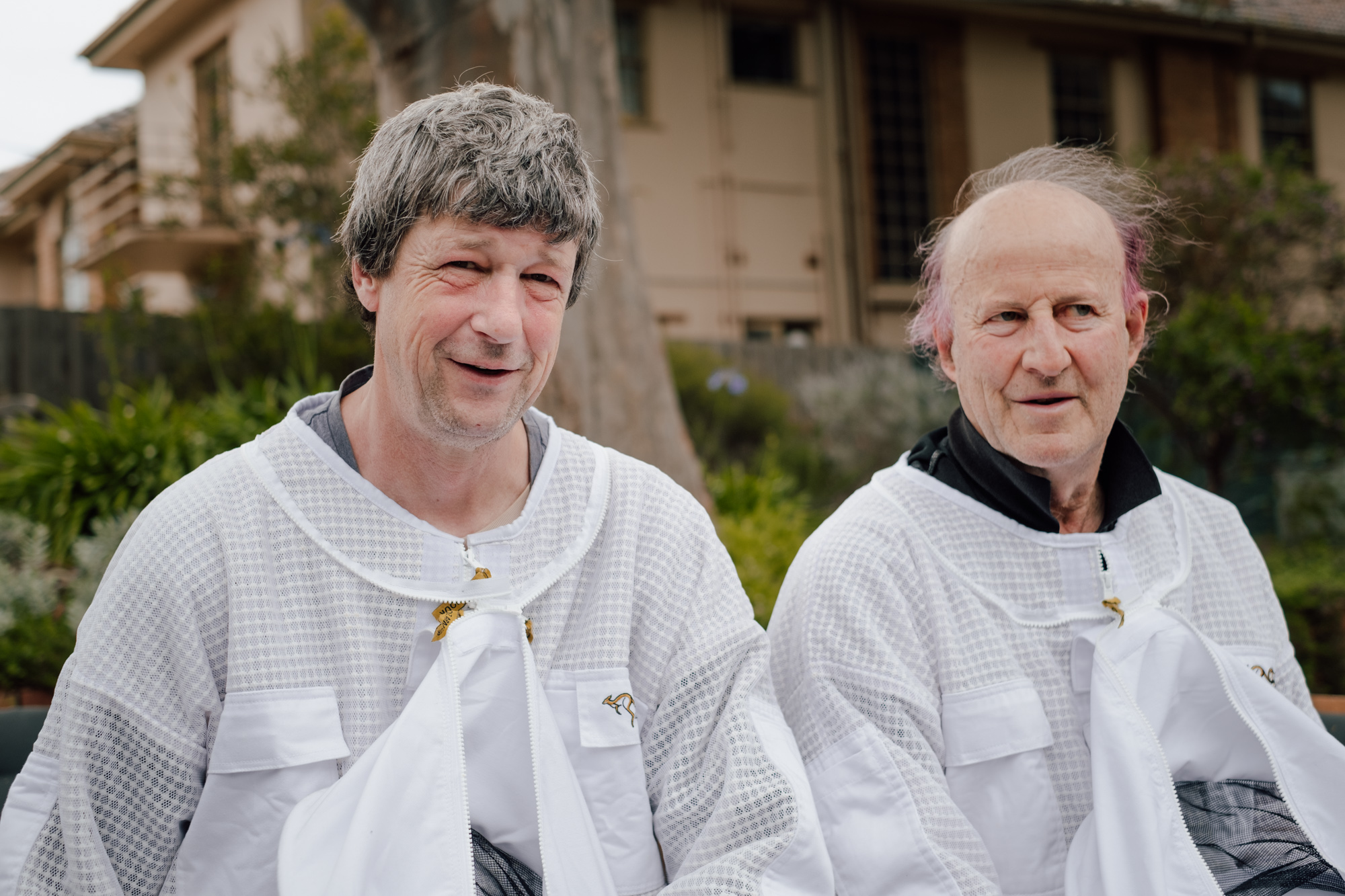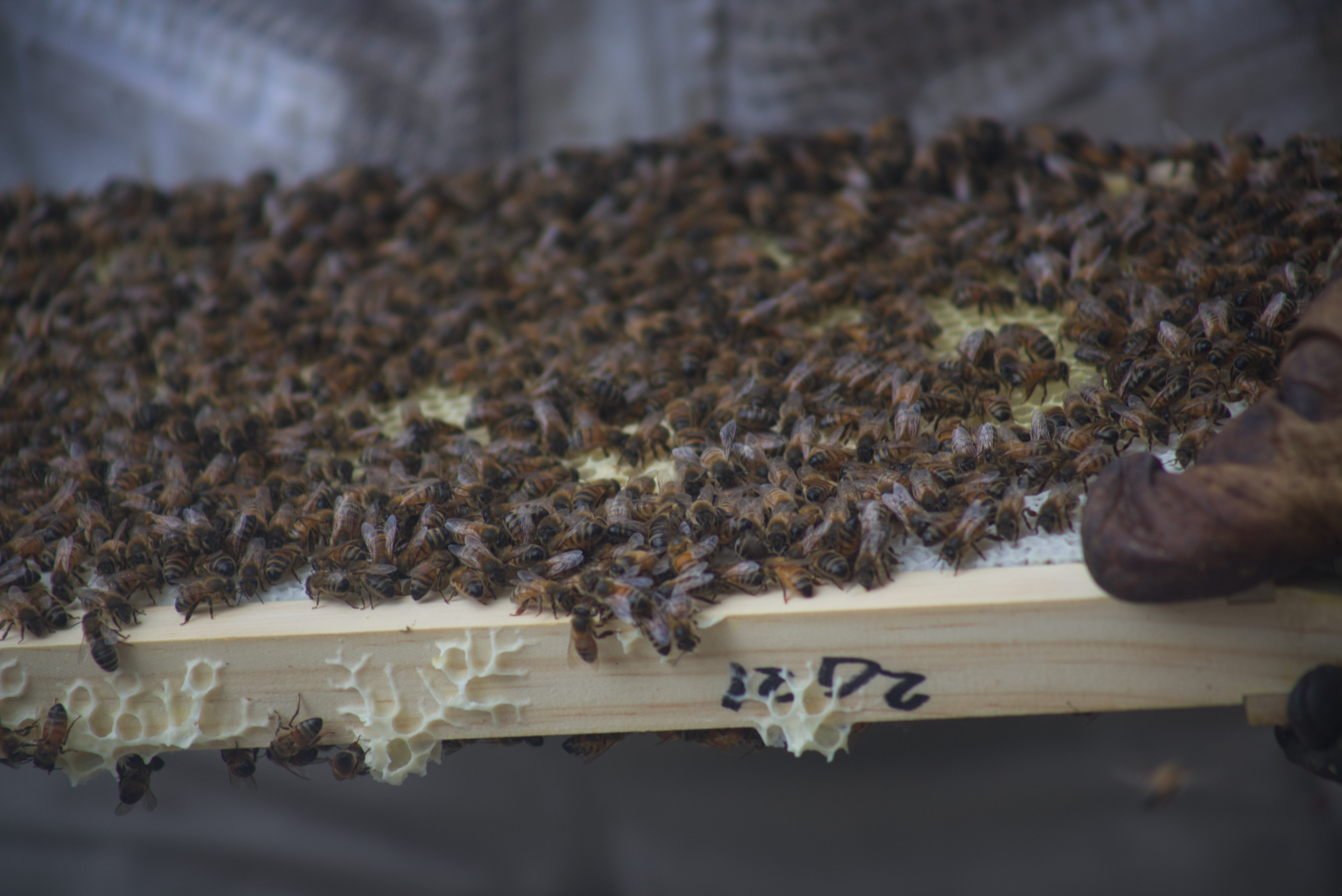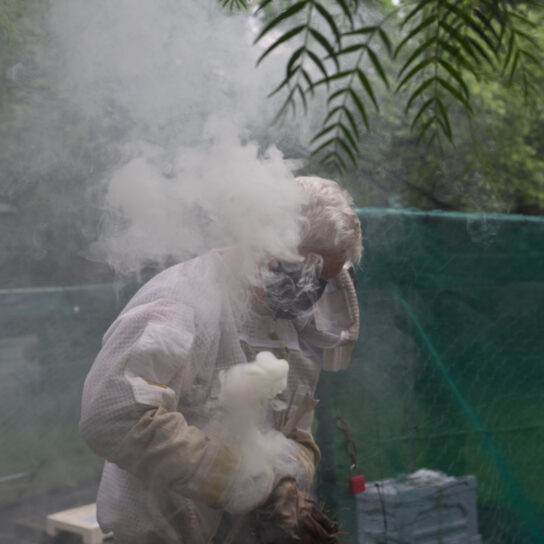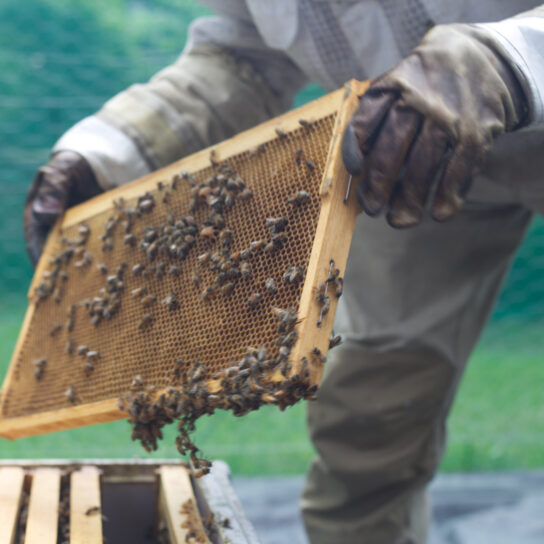Welcome: Honey bees!
Thanks to Bank of Melbourne, residents at Carrical and Hamer Court now care for over 50,000 bees in their very own bee hives.

Looking after bees has been a dream for Servants staff and residents for years – but now it’s a reality. In fact, over 60,000 honey-making bees currently call a Servants house, ‘home’.
The bees aren’t just for show. In fact, they will be put to good use. The process of caring for bees has proven to be therapeutic for residents, giving a sense of purpose.
Karina Battey, Day Manager at Hamer Court, has been intimately involved with the project. She says, “We started with around 35,000 bees at each of two properties, but the hives are growing steadily and we now have thousands more.”
She also sees the impact they have on residents.
How honey-making friends are helping create safe, sustainable housing for people on low incomes.
As with everything, the bee project (which we’re calling Home Sweet Comb), is part of Servants’ mission to create communities where respect, dignity, hope and opportunity are nurtured. The process of caring for bees is therapeutic, especially for people experiencing acute mental illness. And residents are loving it.
Karina says, “Residents are excited. Involvement with the bees is expanding their interest across the whole house, motivating them to try new things and growing a new sense of pride for their home. Caring for the bees gives residents something to look forward to each day, but also gives them a long-term goal as they get excited to make honey in the future.
“I think of one resident in particular. He spent months looking forward to the bees arriving, and there’s a noticeable change in his happiness since he’s been able to get involved.”
Over time, residents plan to harvest honey, and are also getting creative about other ways to use the wax. Wax candles, among other things, might be on the menu in coming months.
All of this has been possible thanks to a grant from Bank of Melbourne, which has supported the purchasing of materials, training, and ongoing support to ensure the project remains sustainable and scalable.


